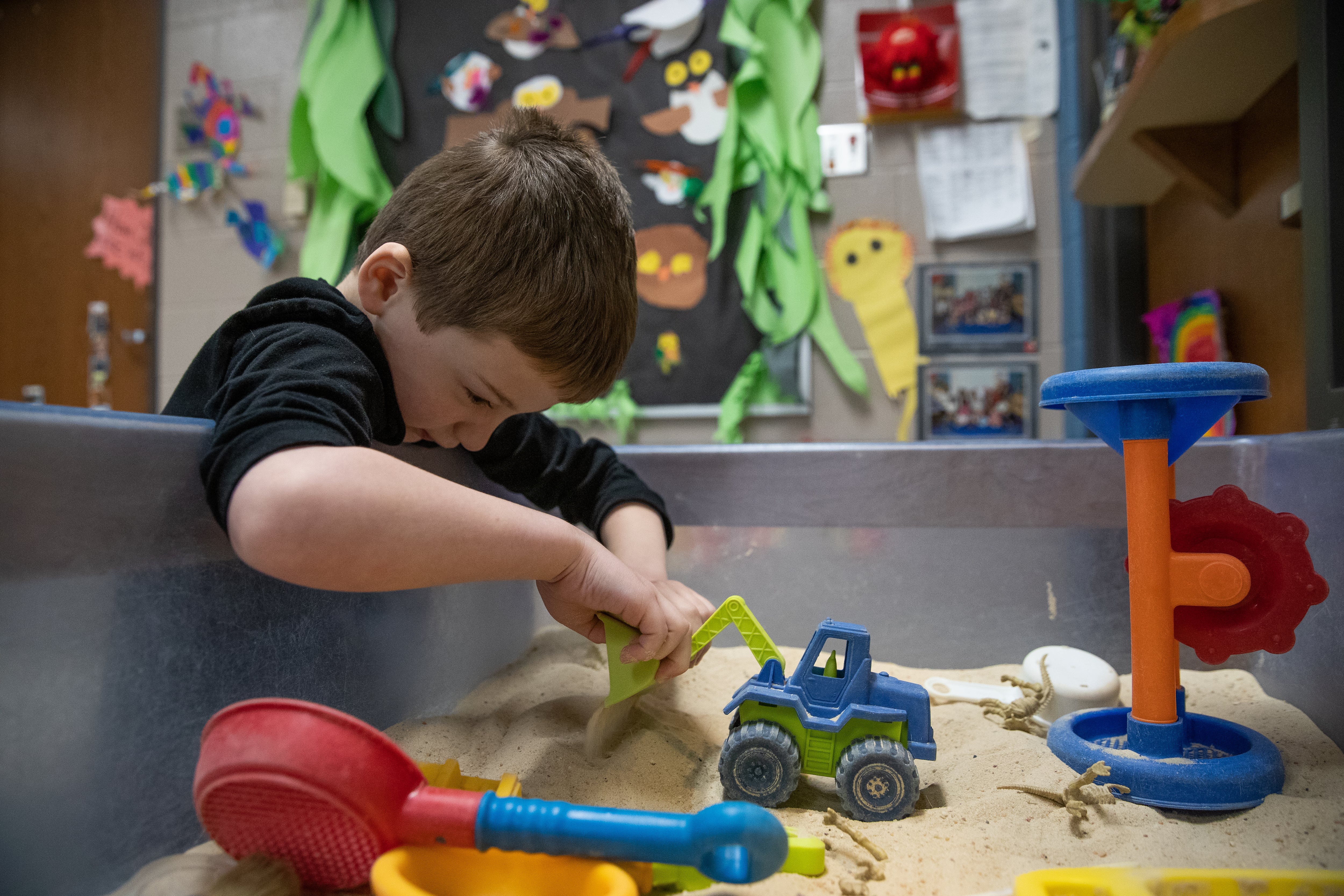A new $15.7 million philanthropic fund will help Indiana child care providers with the costs of taking extra health precautions during the coronavirus outbreak.
As the state eases stay-at-home restrictions and more people return to work, child care locations will have to change how they operate to minimize the risk of spreading the coronavirus. Changes could include reconfiguring classrooms to allow for social distancing, enhancing sanitizing procedures, or giving each child their own set of toys and art supplies. Some centers could consider expanding capacity to serve more children if other providers close.
“We think a part of helping families making the decision to return to child care is making sure they feel safe about going back,” said Maureen Weber, president and CEO of Early Learning Indiana, an early childhood education nonprofit that will administer the fund.
The fund, supported by the Lilly Endowment, will be available to providers for children ages 0-5 that rank in or are approaching the top two tiers of the state’s quality ratings. Child care providers can apply for up to $40,000 starting Thursday, with grant amounts depending on the number of children enrolled and extra dollars for providers that serve low-income families. (The Lilly Endowment also supports Chalkbeat. Learn more about our funding here.)
The state had encouraged day cares to stay open through the spring shutdown and offered grants to aid some providers that saw enrollment and revenue declines as parents kept their children at home. Still, about one-third of providers across Indiana temporarily closed during the health crisis, Weber said, and child care providers still face a lot of uncertainty as the state allows businesses to re-open — permitting more families to return to work — and monitors the continued spread of COVID-19.
“In the very best of times, it’s a very challenging business. There are very slim — sometimes negative — operating margins, just because of the cost of care and the challenges families have affording it,” Weber said. “And now there are some new challenges for providers.”





